
The Hoover Institution is renowned globally for its high-quality scholarship on a wide breadth of subjects, ranging from economic policy to national security to history. Compiled here are the sixteen books written by Hoover fellows in 2015.
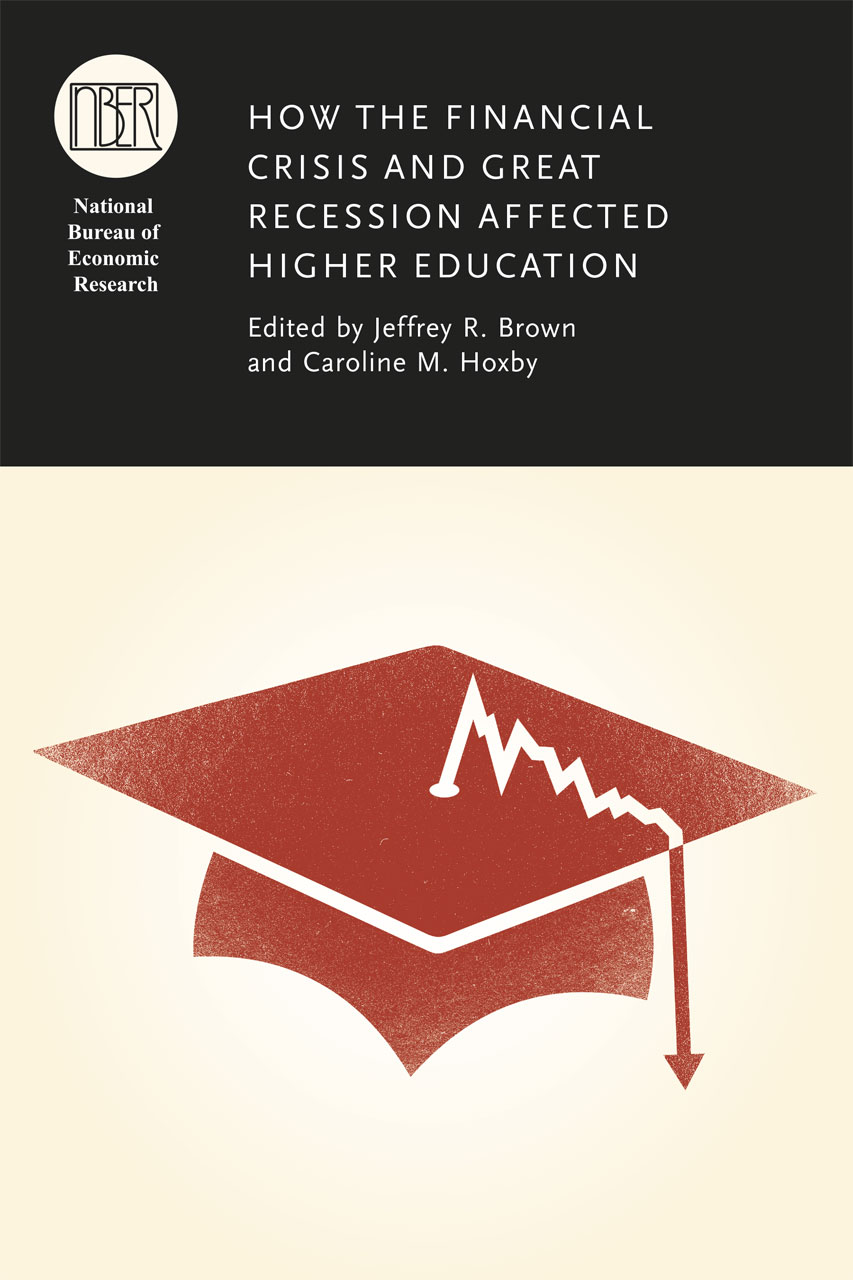
How the Financial Crisis and Great Recession Affected Higher Education
Edited by Caroline M. Hoxby, Jeffrey Brown
The recent financial crisis had a profound effect on both public and private universities, which faced shrinking endowments, declining charitable contributions, and reductions in government support. Universities responded to these stresses in different ways. This volume presents new evidence on the nature of these responses, and on how the incentives and constraints facing different institutions affected their behavior. The studies in this volume explore how various practices at institutions of higher education, such as the drawdown of endowment resources, the awarding of financial aid, and spending on research, responded to the financial crisis. The studies examine universities as economic organizations that operate in a complex institutional and financial environment. The authors examine the role of endowments in university finances and the interaction of spending policies, asset allocation strategies, and investment opportunities. They demonstrate that universities’ behavior can be modeled using economic principles.
Learn more at the University of Chicago Press website.

Ronald Reagan: Decisions of Greatness
By Martin Anderson, Annelise Anderson
The authors offer new perspectives on Ronald Reagan’s primary accomplishment as president: persuading the Soviets to reduce their nuclear arsenals and end the Cold War. They detail how he achieved this success and in the process explain why Americans consider Reagan one of our greatest presidents. Ultimately, they reveal the depth of Reagan’s vision of a world safe from nuclear weapons, painting a clear portrait of a Cold Warrior who saw the possibility of moving beyond that war.
For more information, see the Hoover Press website.
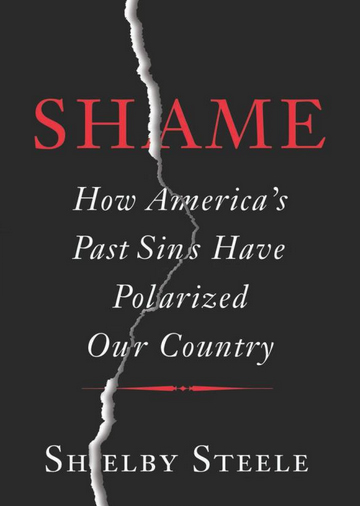
Shame: How America's Past Sins Have Polarized Our Country
By Shelby Steele
Shelby Steele explains that the United States today is hopelessly polarized; the political Right and Left have hardened into rigid and deeply antagonistic camps, preventing any sort of progress. Amid the bickering and inertia, the promise of the 1960s—when we came together as a nation to fight for equality and universal justice—remains unfulfilled.
To learn more, see the Basic Books website.
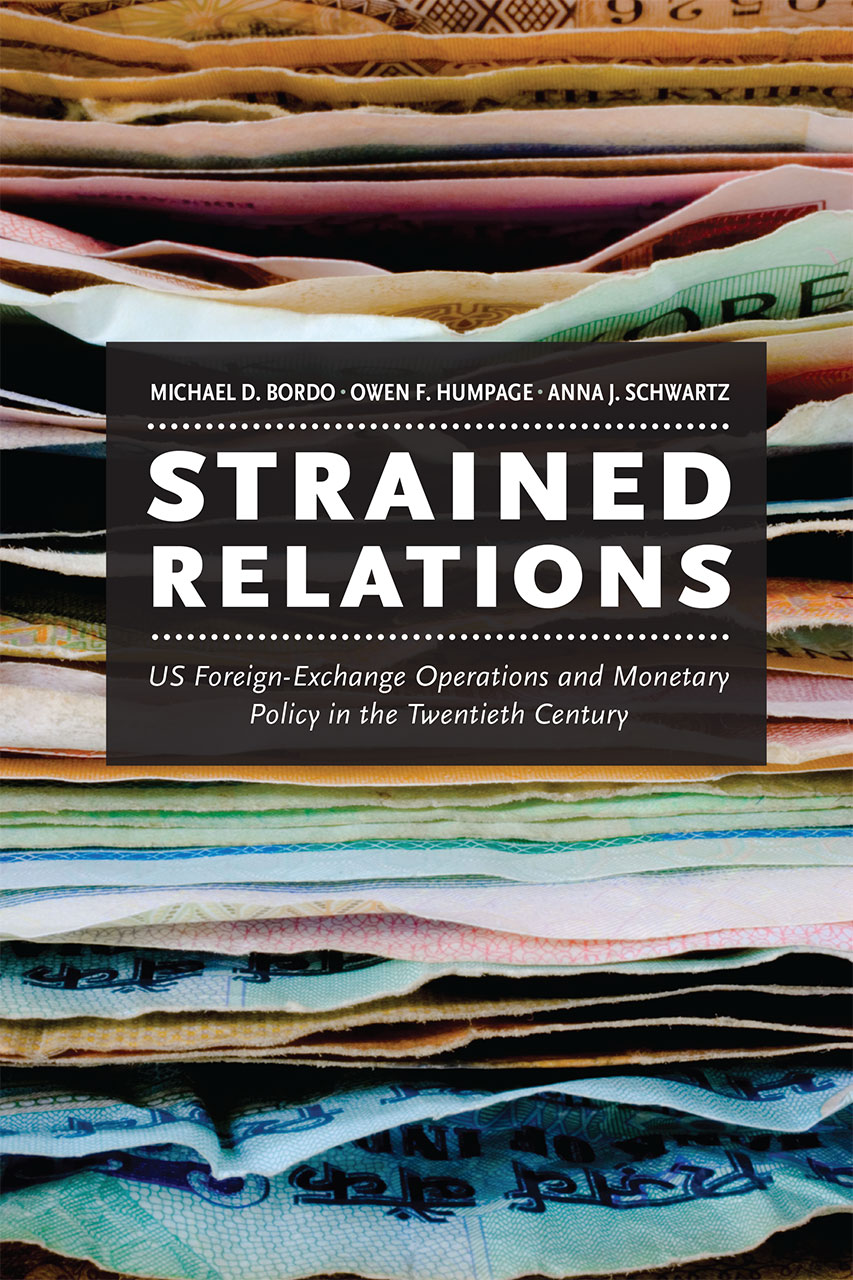
US Foreign-Exchange Operations and Monetary Policy in the Twentieth Century
By Michael D. Bordo, Owen F. Humpage, Anna J. Schwartz
During the twentieth century, foreign-exchange intervention was sometimes used in an attempt to solve the fundamental trilemma of international finance, which holds that countries cannot simultaneously pursue independent monetary policies, stabilize their exchange rates, and benefit from free cross-border financial flows. Drawing on a trove of previously confidential data, Strained Relations reveals the evolution of US policy regarding currency market intervention, and its interaction with monetary policy.
For more information, see the University of Chicago Press website.
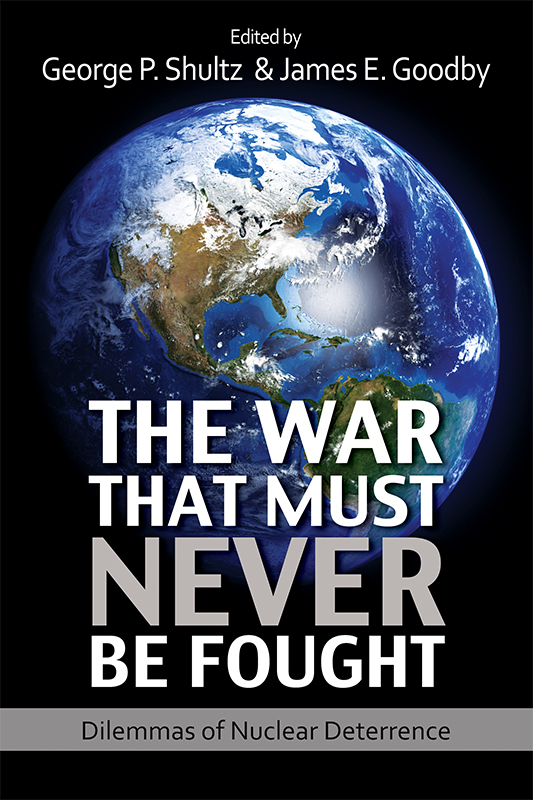
The War That Must Never Be Fought
Edited by James Goodby, George P. Shultz
The War That Must Never Be Fought is a collection of essays exploring how nuclear deterrence should be understood seventy years after the first nuclear explosions. The contributors examine nuclear deterrence from the vantage points of nations in Europe, the Middle East, and Asia, all of which have some form of security relationship with the United States. The contributors challenge deterrence theories developed during the Cold War to show that a successful effort to reduce and eliminate the nuclear threat must be based on a combination of regional and global joint enterprises.
For more information see the Hoover Press website.

Free Market Environmentalism For The Next Generation
By Terry Anderson and Donald Leal
Free Market Environmentalism for the Next Generation provides an optimistic way of thinking about how to link dynamic environments to dynamic economies. This link begins by asking “who owns the environment,” the topic of chapter 3. Answering this question is critical for “rethinking the way we think” about the environment in a way that harnesses property rights and markets to improve stewardship of our natural world. The first three chapters focus on the importance of property rights for encouraging exchange for resolving competing demands on the environment through cooperation rather than conflict. The last seven chapters cover specific applications to land management, water, fisheries, energy, and general implications for environmental entrepreneurship. The book concludes by tackling the tougher problems including management of the open oceans and climate change, two of the biggest problems facing the next generation of environmentalists.
For more information visit Amazon.
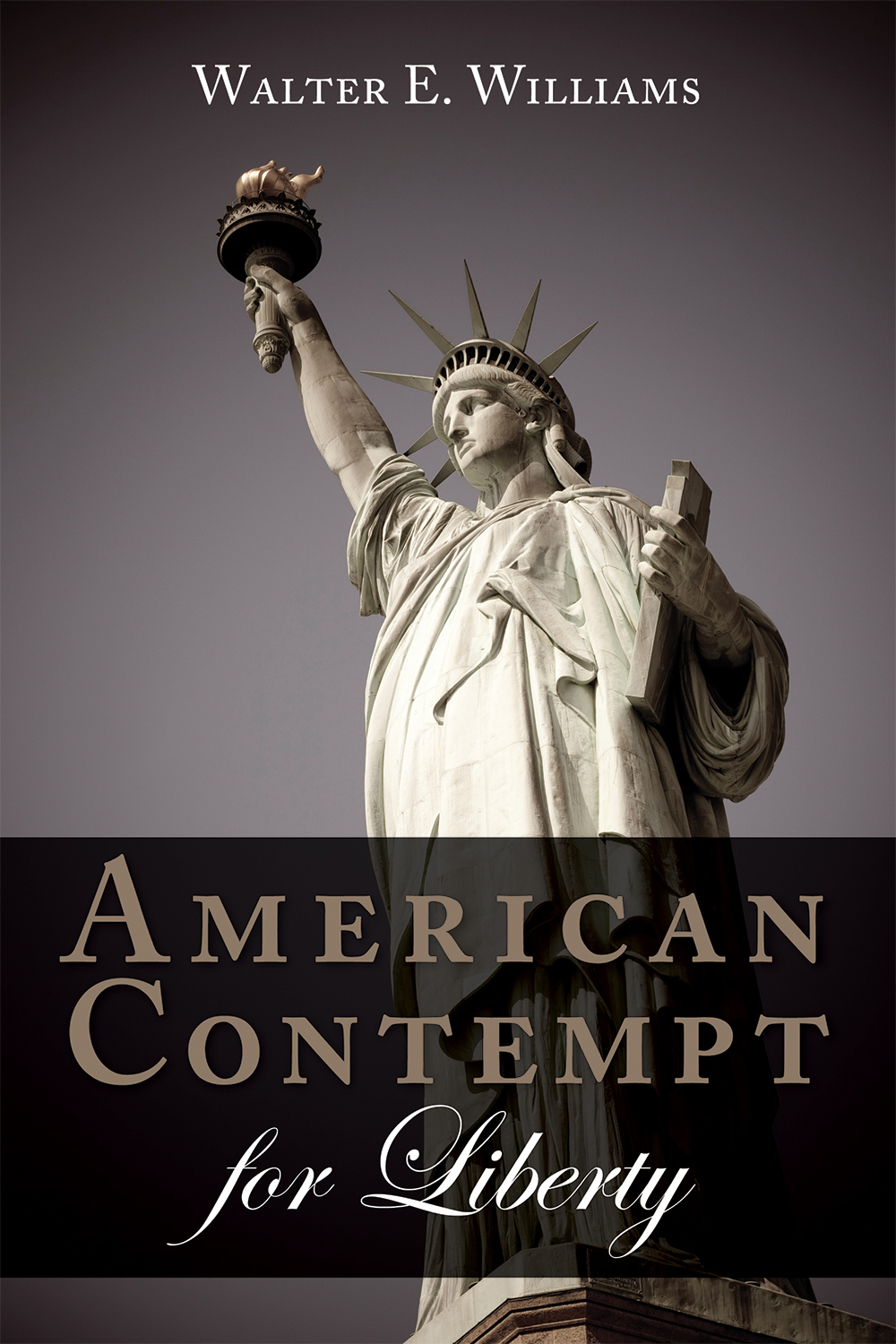
American Contempt for Liberty
By Walter E. Williams
In this latest collection of essays selected from his syndicated newspaper columns, Walter E. Williams takes on a range of controversial issues surrounding race, education, the environment, our Constitution, and more. Skewering the self-righteous and self-important forces throughout society, he makes the case for what he calls the “the moral superiority of personal liberty and its main ingredient—limited government.” With his usual straightforward insights and honesty, Williams reveals the loss of liberty in nearly every important aspect of our lives and the massive decline in our values.
This publication is available for purchase from the Hoover Institution Press.
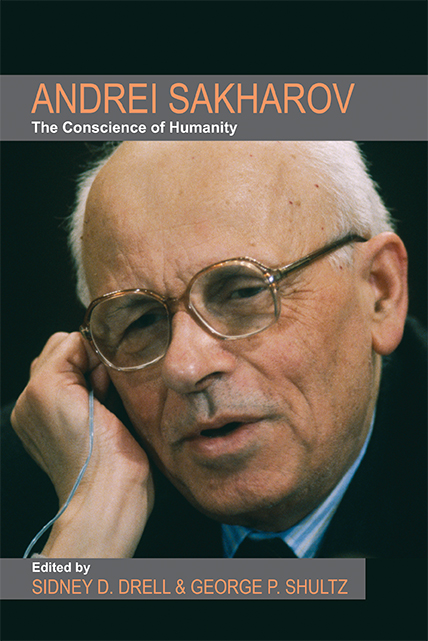
Andrei Sakharov: The Conscience of Humanity
By George P. Shultz, Sidney D. Drell
Drawing from a 2014 Hoover Institution conference focused on the life and principles of Andrei Sakharov, this book shows how the work and thinking of this eminent Russian nuclear physicist and courageous human rights campaigner can help find solutions to the nuclear threats of today. The essays tell the compelling story of the metamorphosis of Sakharov—from a distinguished physical scientist into a courageous, outspoken dissident humanitarian voice..
This publication is available for purchase from the Hoover Institution Press.
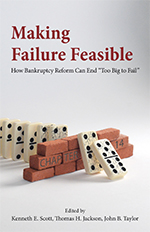
Making Failure Feasible
By Thomas Jackson, Kenneth E. Scott, John B. Taylor
A distinguished group of contributors expands on the Resolution Group’s proposal for a Chapter 14 addition to the Bankruptcy Code that includes provisions that would lead to quicker resolution, clear outcomes that would not be dependent on government discretion and that would mesh with emerging ideas about cross-border resolution. The contributors provide the context for reform, outline the fundamental principles of reform, and show how reform would work in practice.
This publication is available for purchase from the Hoover Institution Press.
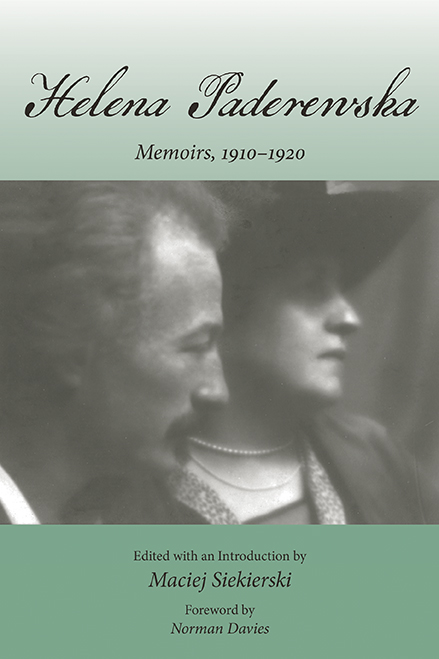
Helena Paderewska: Memoirs, 1910–1920
By Maciej Siekierski
THelena Paderewska, the wife of celebrated pianist Ignacy Jan Paderewski, tells the story of her husband’s grassroots efforts to influence the course of history for their native Poland after World War I. She tells how, using his personal fame and charisma, Paderewski gained access to the top political leadership of France, Britain, and the United States and became an eloquent spokesman for the then-occupied country of his birth.
This publication is available for purchase from the Hoover Institution Press.
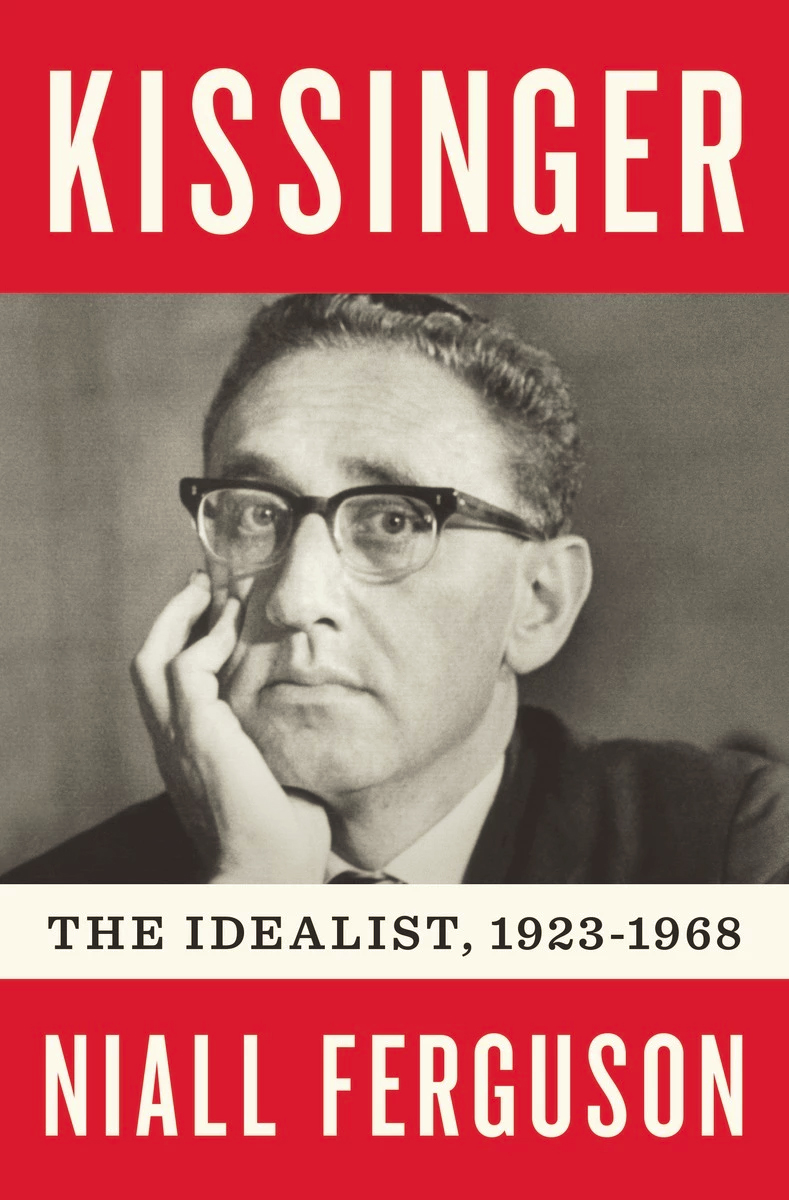
Kissinger: 1923-1968: The Idealist
By Niall Ferguson
The Idealist is the story of one of the most important strategic thinkers America has ever produced. It is also a political Bildungsroman, explaining how “Dr. Strangelove” ended up as consigliere to a politician he had always abhorred. Like Ferguson’s classic two-volume history of the House of Rothschild, Kissinger sheds dazzling new light on an entire era. The essential account of an extraordinary life, it recasts the Cold War world.
This publication is available for purchase here.
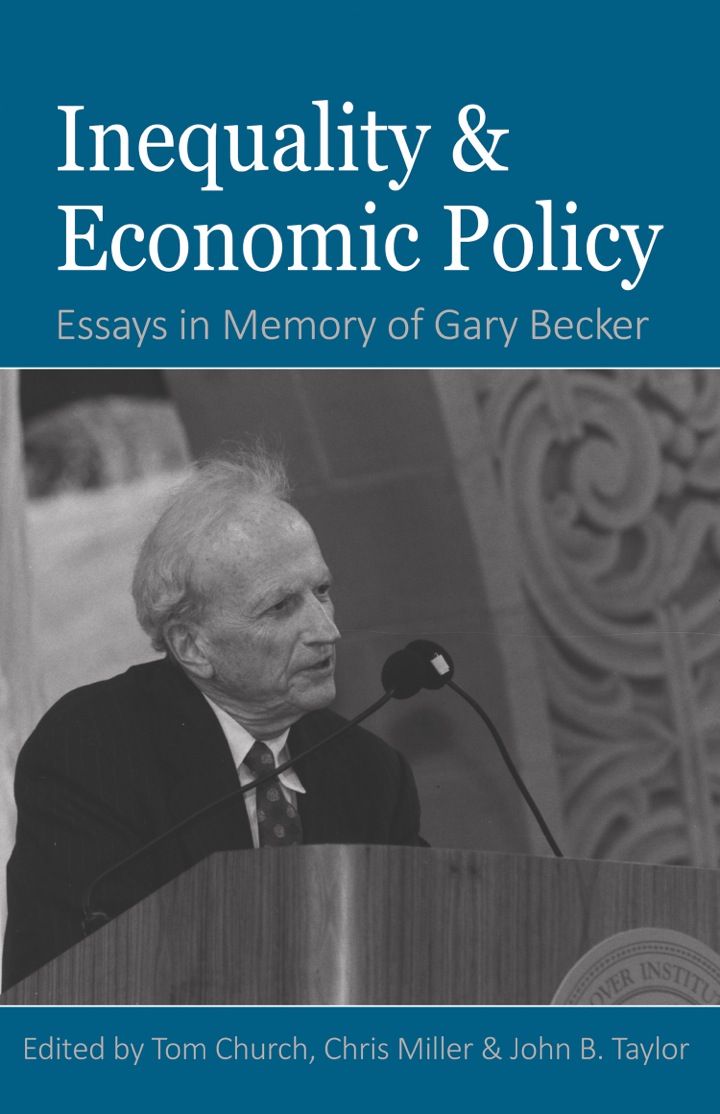
Inequality and Economic Policy
Edited by Tom Church, John B. Taylor, Christopher Miller
Distinguished contributors explore various measures of inequality in America and ask why it is increasing and whether it matters. In examining those questions, the authors present new research on human capital and intergenerational mobility. The authors draw conclusions for public policy, paying particular attention to those at the bottom of the income distribution and the overall effects on economic growth.They assess changing trends in inequality and draw conclusions for public policy.
For more information, see the Hoover Press.
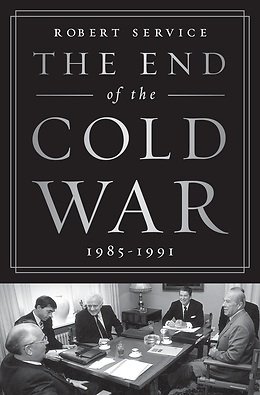
The End of the Cold War: 1985-1991
By Robert Service
Drawing on new archival research, Robert Service’s gripping new investigation of the final years of the Cold War—the first to give equal attention to the internal deliberations from both sides of the Iron Curtain—opens a window onto the dramatic years that would irrevocably alter the world’s geopolitical landscape, and the men at their fore. The End of the Cold War captures the astonishing relationship between Reagan and Gorbachev, two exceptional politicians who cooperated against all odds during extraordinary times. Gorbachev made enormous contributions to reconciliation efforts by, for instance, pressing for maintaining support for rapprochement with the US within the Politburo and refusing to sanction military intervention when civil unrest swept the Baltic states in unprecedented numbers.
This publication is available for purchase here.
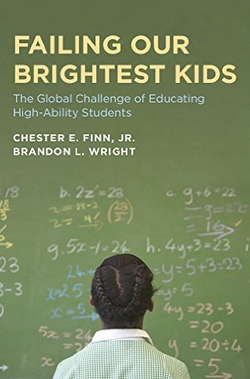
Failing Our Brightest Kids: The Global Challenge of Educating High-Ability Students
By Chester E. Finn Jr., Brandon L. Wright
In this provocative volume, Chester E. Finn, Jr., and Brandon L. Wright argue that, for decades, the United States has done too little to focus on educating students to achieve at high levels. The authors identify two core problems: First, compared to other countries, the United States does not produce enough high achievers. Second, students from disadvantaged backgrounds are severely underrepresented among those high achievers. The authors describe educating students to high levels of achievement as an issue of both equity and human capital: talented students deserve appropriate resources and attention, and the nation needs to develop these students’ abilities to remain competitive in the international arena.
This publication is available for purchase here.
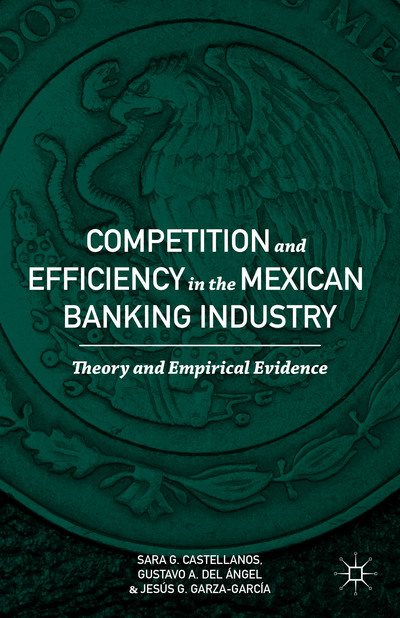
Competition and Efficiency in the Mexican Banking Industry: Theory and Empirical Evidence
By Gustavo A. Del Angel , Sara G. Castellanos, Jesús G. Garza-García
This book contributes to the understanding of competition policy in the Mexican banking system and explains how levels of competition relate to banks' efficiency. The authors study the banking sector in Mexico, a developing country with a regulated and sound banking system and an industry with strong participation from global systemic banks. Changes experienced by the Mexican financial system in recent decades have completely transformed its architecture, structure of ownership and control, and its competitive conditions, and have undeniably affected system performance and efficiency. This provides a natural laboratory in which to answer the questions of scholars, economists, and policymakers.
This publication is available for purchase here.






















